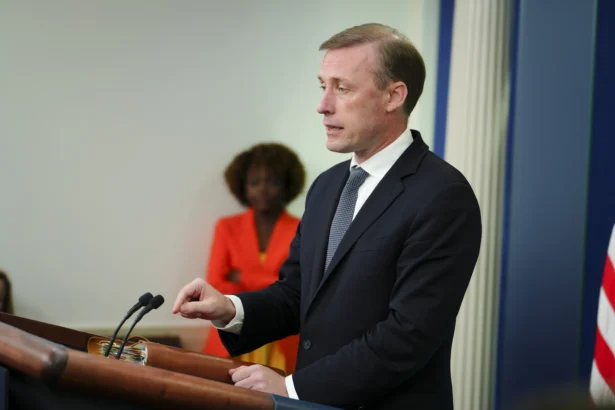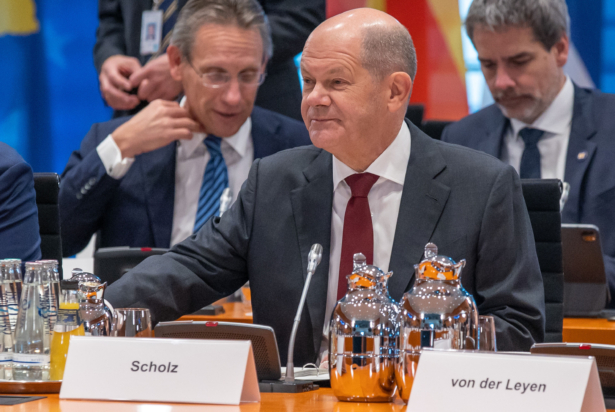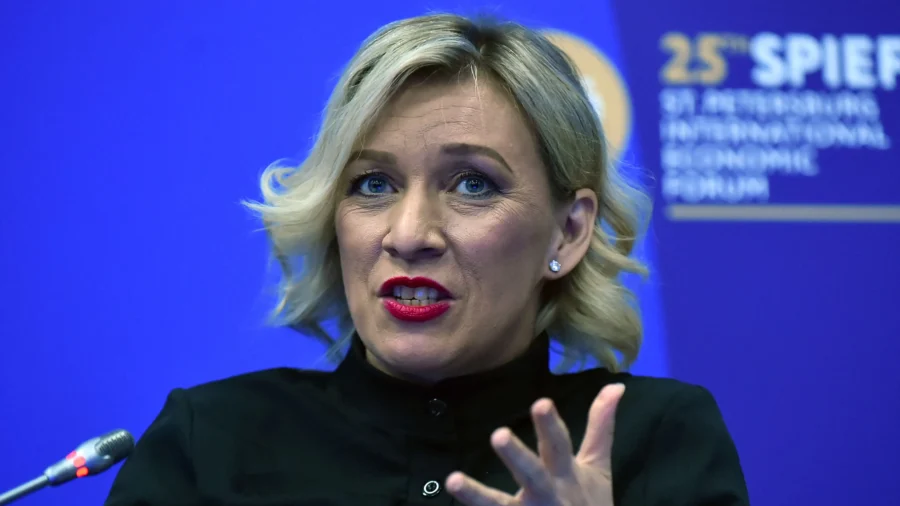Russian officials threatened the West on Sunday with a “severe” response if it dared to confiscate any of the $300 billion worth of frozen Russian assets.
In a post on Telegram, Russian Foreign Ministry spokesperson Maria Zakharova responded to a Wall Street Journal article about Germany arguing in favor of leaving Russia’s frozen assets intact so that they could be used as leverage to compel Russia to cede some of the Ukrainian territory it invaded.
Ms. Zakharova said Russia would not give ground and threatened a “severe” response if Western countries seized its assets.
“I don’t know who is saying what, but the assets on the territory will not change. We don’t trade our homeland,” Ms. Zakharova wrote on her Russian Telegram account.
“And Russian assets must remain inviolable, otherwise there will be a severe response to Western theft. And many in the West have already understood this. It’s a pity not all of them have,” the post continued.
In a separate statement, Kremlin spokesman Dmitry Peskov reminded everyone that there was still a lot of Western money in Russia.
“The prospects for legal challenges will be wide open,” he said. “Russia will take advantage of those and will endlessly defend its interests.”
The remarks come days after President Joe Biden signed a new U.S. aid package for Ukraine that also contained the REPO act, a measure that allows the administration to seize Russian state assets located in the U.S. and reappropriate them for the benefit of Kyiv.
More than $6 billion of Russian assets are frozen in U.S. banks, including $5 billion in Russian Central Bank holdings. Western countries have frozen nearly $300 billion in Russian assets, most of which is in the European Union, notably in France, Germany, and Belgium.
Russian assets consist mostly of foreign currencies (dollars, pounds, euros…, etc.), gold, and government bonds. Though the assets cannot be accessed, they still belong to their owners, which include not only the Russian state but also private citizens.
According to the Financial Times, it was the White House that suggested that legal experts from the Group of Seven (G7) industrialized nations explore ways to seize that money, as no legal framework existed that allowed for the confiscation and repurposing of those assets.

However, the legislation states that any action of the U.S. to seize the assets should be done in cooperation with international allies. “The ideal is that we all move together,” National Security Adviser Jake Sullivan said at a press briefing on April 24.
Despite pressure from the U.S. and the U.K., member states of both the EU and the G7 have remained divided about the idea to confiscate Russian assets, as have Western foreign policy experts and economists, who fear the decision may undermine foreign investors’ confidence.
European Central Bank President Christine Lagarde urged caution about the plan earlier this month at a Council on Foreign Relations event, as she feared it could “start breaking the international legal order.”

In March, German Chancellor Olaf Scholz announced that European countries seek to use the windfall profits generated by the frozen Russian assets to buy weapons for Ukraine.
According to EU estimates, interest on that money could yield around 3 billion euros ($3.3 billion) each year.
However, the idea will need the backing of all EU countries to go through, which means it must win approval from Hungarian Prime Minister Viktor Orban, a harsh critic of EU sanctions on Moscow.
Some other EU nations have also expressed reservations about the idea, according to the Associated Press.


